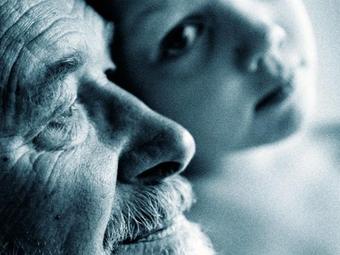fearless- life comfort system
AAL Success stories
In an a effort to raise visibility of our projects, we inaugurate a section dedicated to their concrete use. We start from the project Fearless, from the call 3.
The body is moving more slowly, everything is a bit harder than it used to be and sometimes there is this insecurity, whether something could go wrong. – This frame of mind is not uncommon among the growing number of elderly persons, who are still well capable of living their life in a self-determined way, but are already starting to feel age taking its toll.
This insecurity and fear of not being able to cope anymore, but the wish of keeping on leading an active and independent life represent a modern dilemma! But how can it be solved without taking drastic measures like confinement to a nursing home? How to reduce the threats of this new stage in life?

From research to product: In the late 2000s the victory march of depth sensors in the gaming industry triggered the idea of using this very technology not for playing interactive games, but for detecting one of the biggest risks for elderly persons: Falling down – and what can be even worse – lying there undetected for days before rescue arrives!
In the EU and nationally funded AAL Joint Programme Fear Elimination As Resolution for Loosing Elderly’s Substantial Sorrows, in short: fearless, a consortium of medical experts, psychologists, and geriatric care professionals joined forces with computer specialists to solve this task. The integral project took more than three years from fundamental research to extensive testing and prototyping until the end of 2014 and has today reached its final testing stage: A collaboration with a global acting industry partner was signed in February 2015 in order to work on the future of autonomous fall detection with 3D sensors. In a pioneer venture the Samariterbund Vienna opened an assisted living community project for inhabitants with (potential) physical restraints, but who are still capable of leading a self-reliant way of life. Aside its bright, friendly character, the spacious commune flat in the North of Vienna has one further asset: It is completely equipped with the fearless – Life Comfort System produced by the CogVis Company, the coordinator of the fearless AAL project. The flat opened its doors for eight inhabitants at the end of 2014 and each tenant was made acquainted with the system. The little sensors sit right below the ceiling or on cupboards with strategic covering of both the common, as well as the private rooms.
The technology behind the system consists of an optical sensor combined with a mini-pc and an internet connection. This technology is capable of detecting the position of a person in the room and the occurrence of a fall on the basis of greyish, so called depth maps entirely without using any pictures or film. No person could be recognized on such depth maps and the privacy of the inhabitants is safe at all times! If a fall occurs, the system sends out an alarm signal to call in help. Also, to make it truly available for a wide number of people in need, the system is not more expensive than the panic button. One of the inhabitants, Frau Müller* (Note: Names changed by the editor), an agile lady at the age of 82, has already gone through several strokes and knows what it means to be helpless in the own flat. She said “it is it a relief to know the fearless system is there”. If it had not been part of the flat’s equipment, she would have had to wear a panic button bracelet. “But what, if you forget to put it on and you fall down?”, she asked.
The system is unobtrusive and another elderly lady, Frau Huber* (84), remarked: “I don’t even notice it’s there anymore”. She feels safer knowing the system is in place to help, if need be. She even remarked with a smile that she thinks it has a nice design. If she had the choice, she would go for the fearless system again. Of course there were also concerns regarding the system. But as fearless had been set up from the beginning with careful integration of psychological and professional advice, any worries could be dissolved easily. Trust in the system could be established and the inhabitants’ prevailing feedback is that of increased safety.
But the fearless – Life Comfort System is suitable not only for helping people in a self-determined living situation, but also for a wider range of applications, e.g. patient suffering from dementia. For them it is of special importance that they do not have to remember putting on some monitoring device like a bracelet in order to be safe. Yet another application is the monitoring of bedridden patients to prevent them from getting out of bed and injuring themselves.


